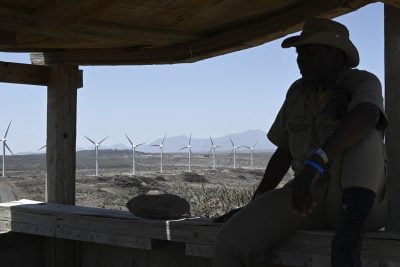The government of Nigeria has announced that it is finalising a binding deal over the construction of the new coastal railway connecting Lagos in the south-west of the country to Calabar in the south-east.
Agreements over developing the country’s proposed new railways have been signed on several occasions over the past few years but they have been merely preliminary. However Vice President Yemi Osinbajo has revealed that the government hopes to complete all talks over funding the Lagos-Calabar line by the end of June.
A final, binding agreement therefore looks likely. China Civil Engineering Construction Company (CCECC) signed an agreement with President Muhammadu Buhari in June 2016 to develop the line. Construction costs are now estimated at $11.12bn, down $800m on the initial estimate, perhaps because of lower steel prices. Phase 1 will run between Calabar and Port Harcourt; while Phase 2 will run between Port Harcourt and Lagos via Onitsha.
New borrowing
The Ministry of Transport’s own capital budget for 2017 is $800m, covering rail, water and road transport, so borrowing appears to be the only means of financing large scale rail projects. The Minister of Transport Rotimi Amaechi said: “Our plan is to complete the rail projects in 2019. Once our borrowing plan of $6.1bn from the Chinese Exim Bank is approved by the National Assembly, we will be able to access the loan from the Chinese government and work will commence immediately.”
Although the government is seeking to cut costs and minimise its debts in the face of the current severe economic crisis, it is still prepared to take on more debt to finance capital spending. Abuja is to take out its biggest ever single loan, $6.1bn, from China’s Export-Import (Exim) Bank, to support various rail projects that are scheduled for completion by late 2019. This will include Phase 1 of the Lagos-Calabar railway, plus work on the Kano-Kaduna and Lagos-Ibadan lines.
The federal government will provide 15% of the funding for the Lagos-Ibadan line, with the remainder to be taken out of the Exim Bank loan. The line will run directly to the Port of Apapa and so should provide direct access to the country’s biggest container terminal from the north of the country.
No announcement has been made on whether the line will also directly run to Tin Can Island Port, which lies just 6km from Apapa. Ibadan inland dry port will be upgraded as part of the project to aid traders in the north. A tender for the concession to overhaul and operate the existing two railways between Lagos and Kano, and Port Harcourt and Maiduguri closed at the end of March.
The only bidder was a consortium of GE, APM Terminals, South Africa’s Transnet and Sinohydro of China. It remains to be seen whether the state owned Nigerian Railway Corporation (NRC) will operate the planned new railways when they are completed. It seems more likely that foreign, private sector operators could be offered concessions, either on their own or in public private partnerships with the NRC.
Rail neglect
Nigeria has long neglected its rail network, even in comparison with some other parts of Africa, perhaps because the rail network does not have any anchor customers, such as mining firms. The lack of rail freight options in most parts of the country has had a big impact on the nation’s roads. If completed as planned, the new railways should help spread economic development around the country.
Osinbajo said that a revamped railway system would “confer many benefits on the society. Our ultimate goal is to restore a railway using culture for both commercial and personal transportation. We are confident that the national rail project will create up to 500,000 jobs. Aside, it will facilitate the movement of up to 3.2m tonnes of cargo per annum.”
He added that the rail investment plans reflected “the federal government’s to build a globally competitive economy with first grade infrastructure. Railway, in our strategy, is underscored by our economic recovery and growth plan as well as incorporated 2016 and 2017 budgets…The Chinese Government and Chinese Exim Bank have always proved to be a reliable partner to the Nigeria government.”
Neil Ford
Want to continue reading? Subscribe today.
You've read all your free articles for this month! Subscribe now to enjoy full access to our content.
Digital Monthly
£8.00 / month
Receive full unlimited access to our articles, opinions, podcasts and more.
Digital Yearly
£70.00 / year
Our best value offer - save £26 and gain access to all of our digital content for an entire year!
 Sign in with Google
Sign in with Google 


